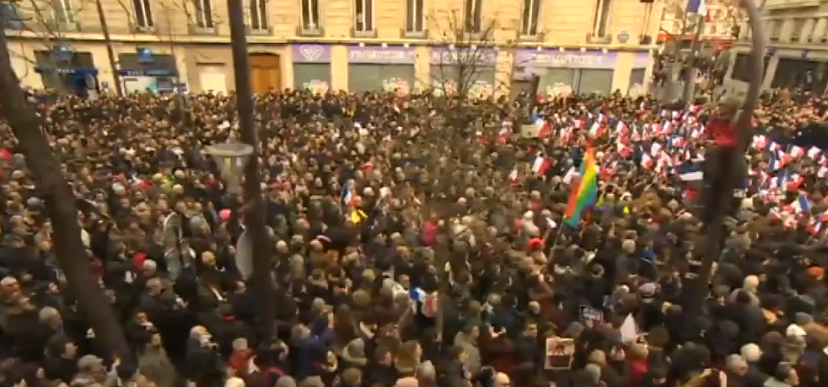Breaking
After attacks, France fights call for mass migration of Jews
PARIS — Faced with images of overturned tombstones and yet another deadly attack at a European Jewish site, French leaders on Monday countered calls from the Israeli prime minister for a mass immigration with their own plea to the Jewish community.
Hundreds of Jewish graves were found desecrated in eastern France on Sunday, hours after a Danish Jew guarding a synagogue in Copenhagen was shot to death. Frenchmen have been accused of three deadly attacks on Jewish sites since 2012: one at a school in the southern city of Toulouse, another at a museum in Brussels and finally at a kosher market last month.
Twelve people died in total.
“We know there are doubts, questions across the community,” French President Francois Hollande said Monday. “I will not just let what was said in Israel pass, leading people to believe that Jews no longer have a place in Europe and in France in particular.”
French Prime Minister Manuel Valls also said Monday that the government would defend French Jews against what he described as “Islamo-fascism.”
“A Jew who leaves France is a piece of France that is gone,” Valls told RTL radio.
In 2014, more than 7,000 French Jews in a community estimated at around 500,000 left for Israel, more than double the number for 2013.
And the Israeli Cabinet on Sunday approved a million plan to encourage still more Jewish immigration from France, Belgium and Ukraine.
The exodus from France accelerated after the March 2012 attacks by Mohammed Merah, who stormed a Jewish school in Toulouse, killing three children and a rabbi.
Prime Minister Benjamin Netanyahu said Sunday that at a time of rising anti-Semitism in Europe, Israel is the only place where Jews can truly feel safe.
“This wave of attacks is expected to continue,” Netanyahu told his Cabinet. “Jews deserve security in every country, but we say to our Jewish brothers and sisters, Israel is your home.”
Netanyahu’s comments triggered an angry response from Copenhagen’s chief rabbi, Jair Melchior, who said he was “disappointed” by them.
Associated Press writers Jan Olsen in Copenhagen and Josef Federman in Jerusalem contributed.






















